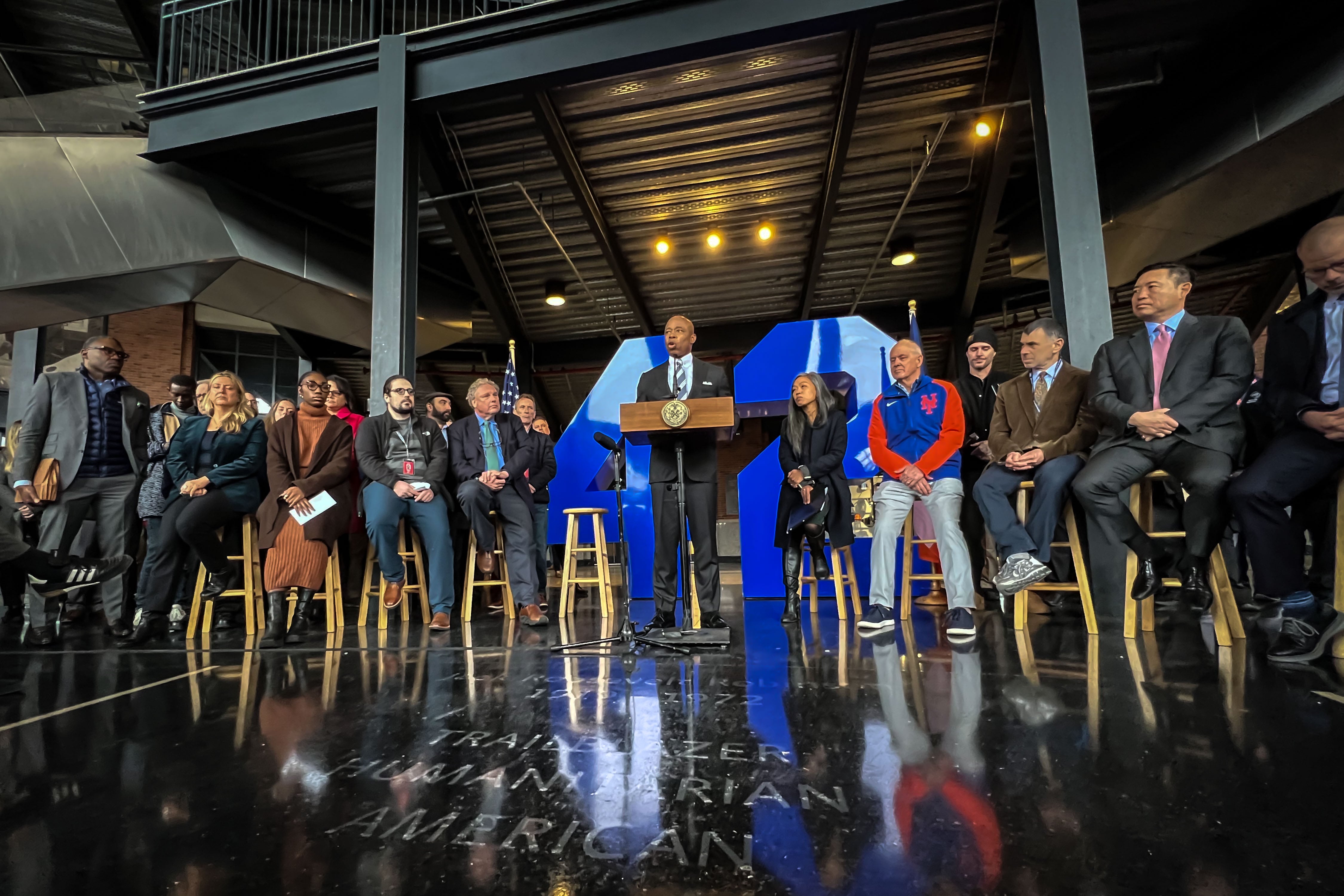New York City’s teachers union wants to open discussions with Mayor Eric Adams about allowing their unvaccinated members to work — one month after 900 education department employees were fired for not getting their shots.
The ask from the union came Thursday, after Adams made the controversial decision to allow the city’s unvaccinated professional athletes and performers to play and perform once again within the five boroughs, even as outsiders had still been permitted to perform or play in those same venues. Adams said the policy change closed a “confusing loophole” in the rules.
The move immediately brought backlash from labor unions, after Adams said the city is not currently considering changing rules for city workers.
The United Federation of Teachers, or the UFT, issued a statement on how vaccines remain a “critical tool” against COVID, and “the city should not create exceptions to its vaccination requirements without compelling reasons.”
“If the rules are going to be suspended, particularly for people of influence, then the UFT and other city unions are ready to discuss how exceptions could be applied to city workers,” the union said in a statement posted on Twitter.
Former Mayor Bill de Blasio instituted a vaccine mandate in the fall for the education department and other city employees, drawing multiple legal challenges, including from teachers and unions representing schools staffers. Those challenges were unsuccessful.
Adams supported de Blasio’s mandate. In February, the new mayor fired more than 1,400 city workers — less than 1% of city staff — who had been on unpaid leave for months after failing to get vaccinated, the New York Times reported. Sixty-three percent of the fired workers were education department employees, who made up less than 1% of all schools employees.
Other unions blasted Adams’ decision for giving athletes a pass but not doing the same for public employees, including the union representing police officers and Harry Nespoli, the chair of the Municipal Labor Committee.
“There can’t be one system for the elite and another for the essential workers of our city,” Nespoli said in a statement. “We stand ready to work out the details with the Mayor, as we have been throughout this process.”
In his announcement about athletes and performers on Thursday, Adams insisted he was not making the decision under pressure or “loosely, haphazardly,” but rather “because the city has to function.”
Asked Thursday if he’s considering rehiring unvaccinated city workers, Adams told reporters “not at this time.” While lauding the majority of city workers who got their shots, he said those who were unvaccinated workers “understood” the rules.
“And they decided not to do so, so at this time we’re not entertaining it,” Adams said.
On top of peeling back vaccine restrictions for professional athletes and performers in private venues, Adams has steadily peeled back other COVID mitigations, including dropping the proof-of-vaccine requirement for restaurants and other indoor venues. For the city’s public schools, Adams gave the green light to make masks optional for K-12 earlier this month, and is expected to extend that policy to children under 5 early next month.
Reema Amin is a reporter covering New York City schools with a focus on state policy and English language learners. Contact Reema at ramin@chalkbeat.org.







